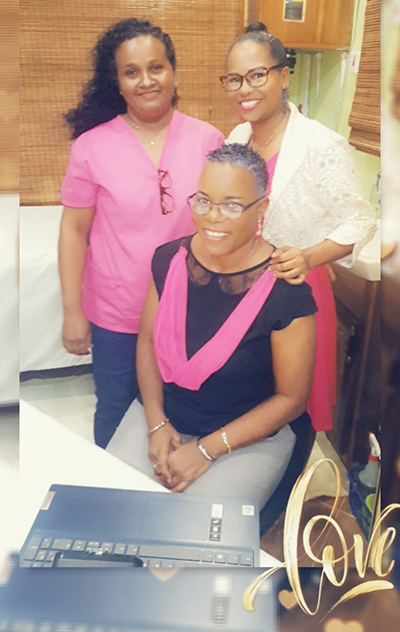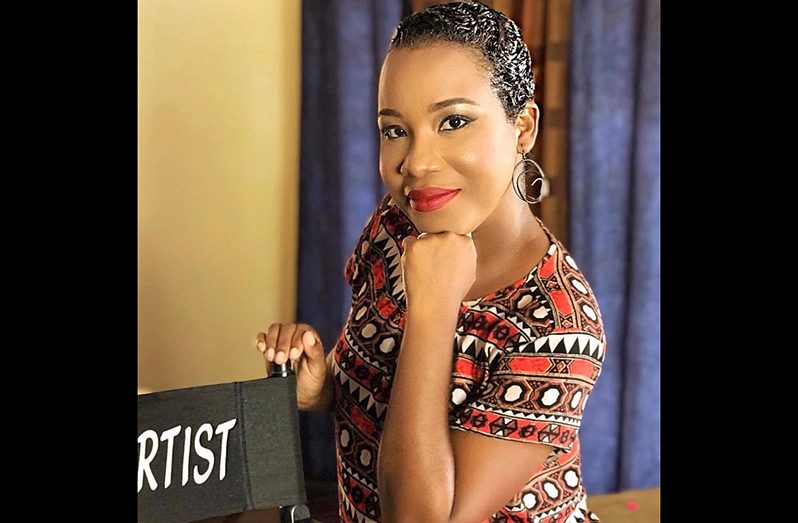– Once right steps are taken early
MANY of the women with breast cancer who seek help from Natural Therapist Liesl Headley eventually die, but one question often that boggles Headley’s mind, “What if the women had taken early steps? Could their lives have been spared had they done things differently?”
And the answer, she says, is yes. She reasons that since cancer is largely preventable, a number of those women could have steered themselves away from the disease by making different lifestyle choices.

Feeling the need to speak out on the matter, Headley, along with some of her friends in the field, usually hosts a breast-cancer awareness seminar annually to educate women about how proper breast care can save their lives.
The latest of such seminars was held October 30, and for the first time virtually. The meeting saw over 100 women in attendance, along with a few men, and was quite informative on the topic of breast care.
It is thought that by the time cancer it is detected, it would have already been in the body for more than ten years. “That’s how long the cancer cells take to grow to the point where they can be identified,” Headley explained during her presentation.
However, she said once it has been detected early, many things can be done towards the road to recovery. “It is found that most breast cancers are preventable by the things a woman can do for herself. It is preventable if you can help yourself.”
Among some of the tips mentioned for good breast care was regular self-examination once a month and yearly visits to the doctor. Regular physical exercise was stressed along with a good diet, being conscious of weight, regular lymphatic drainage massages and less exposure to chemicals.
“Shampoos, hair sprays, eye shadows, lipstick, nail polish and the list goes on. When we buy these things, we must look at the labels to know what we can avoid from putting on our bodies,” Headley advised.
Other things that can be done include using non-toxic home cleaners, not smoking, getting sufficient rest, making time to relax, limiting the intake of alcohol and being aware of the hormonal drugs that are going into your body.
The meeting also featured presentations from Dr. Heather Morris-Wilson, a dermatologist and the Director of the Palms Leprosy Clinic, along with massage therapists Natasha Goodman and Bibi Chee-A-Tow, among others.
In almost all of the presentations made, it was stressed that the use of boneless bras could help save lives. “The more we wear our bra, especially those with wires, the higher our likelihood of developing cancer because around the breast area needs to be free so that toxins can flow out freely,” explained Headley.
Some women prefer not to know what is happening to their bodies and are afraid of clinical examinations. Some also get involved in baseless traditions such as piercing their nipples and placing tattoos on their breasts.
Dr. Morris-Wilson during her presentation observed that breast cancer can be asymptomatic. Hence, women need to know what is happening to their bodies so that they may have a chance of detecting problems at an early stage.
Quoting from ‘A profile of Cancer in Guyana’ from 2003 to 2012, prepared by Guyana Cancer Registry and Ministry of Health, Morris-Wilson related that Indo-Guyanese women have been found with the largest number of breast and uterine cancer; Afro-Guyanese women with the largest number of cervical and ovarian cancers; Guyanese women of Chinese descent with highest rates of cervical cancer; Afro-Guyanese 75 years and older had almost three, five and 20 times more cancers than Indo-Guyanese, Guyanese of Mixed races and Amerindians, respectively, in the same age group.
According to her, some signs and symptoms of breast cancer include lumps, pulled in nipples, dimpling, dripping, redness/rash, and skin changes, while the risk factors for developing breast cancer include smoking, physical inactivity, dietary pattern, reproductive agents and infectious agents.
Meanwhile, Headley, who operates Nature’s Own Body Clinic at Lot 95 First Street, Alberttown, has said that many women are suffering from the plague of breast cancer simply because of their lack of knowledge on the subject.
“I am very passionate about helping women take care of their breasts and I have seen so many helpless cases in which they come with their cancer very much advanced and we can’t be of any help to them. It’s really hurtful to see people leave the clinic without us being able to further help them,” she said.



.jpg)








